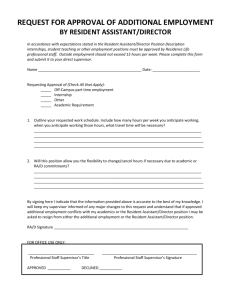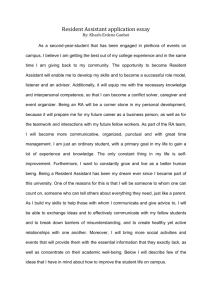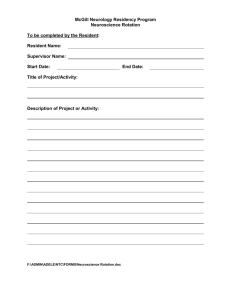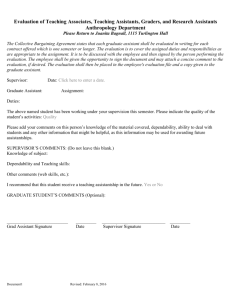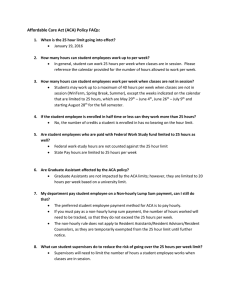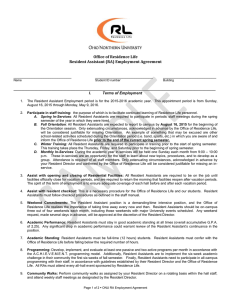Supervision and Coaching - Resident Assistant Director (RAD
advertisement
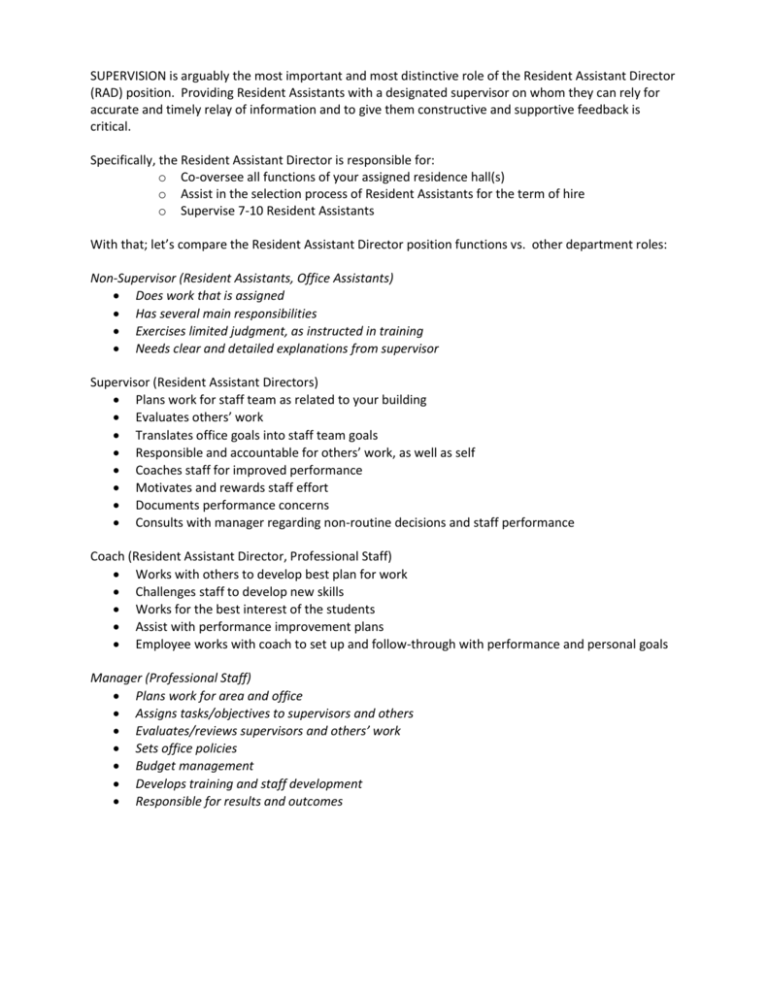
SUPERVISION is arguably the most important and most distinctive role of the Resident Assistant Director (RAD) position. Providing Resident Assistants with a designated supervisor on whom they can rely for accurate and timely relay of information and to give them constructive and supportive feedback is critical. Specifically, the Resident Assistant Director is responsible for: o Co-oversee all functions of your assigned residence hall(s) o Assist in the selection process of Resident Assistants for the term of hire o Supervise 7-10 Resident Assistants With that; let’s compare the Resident Assistant Director position functions vs. other department roles: Non-Supervisor (Resident Assistants, Office Assistants) Does work that is assigned Has several main responsibilities Exercises limited judgment, as instructed in training Needs clear and detailed explanations from supervisor Supervisor (Resident Assistant Directors) Plans work for staff team as related to your building Evaluates others’ work Translates office goals into staff team goals Responsible and accountable for others’ work, as well as self Coaches staff for improved performance Motivates and rewards staff effort Documents performance concerns Consults with manager regarding non-routine decisions and staff performance Coach (Resident Assistant Director, Professional Staff) Works with others to develop best plan for work Challenges staff to develop new skills Works for the best interest of the students Assist with performance improvement plans Employee works with coach to set up and follow-through with performance and personal goals Manager (Professional Staff) Plans work for area and office Assigns tasks/objectives to supervisors and others Evaluates/reviews supervisors and others’ work Sets office policies Budget management Develops training and staff development Responsible for results and outcomes PERFORMANCE COACHING 10 Values of a Successful Staff Coach 1. Clarity- a strong sense of direction & purpose, clear communication 2. Supportiveness –a commitment to stand with and behind team members, providing the help they need, whether that means advice, information, materials, or just understanding and encouragement 3. Confidence Building –a personal commitment a built sustain the self-image of each team member, let the staff on your team know you believe in them and in what they are doing, point to past successes 4. Mutuality –a true partnership orientation, creating and sharing common goals 5. Perspective- an unflappable focus on the entire department, an understanding from the inside out, an ability to explain decisions and policies within a context, strong effort to get to know team as individuals 6. Risk –the encouragement of effort that reduces punishment for mistakes and encourages learning in all things, establish a clear non-threatening way to deal with errors 7. Patience – a view of time & performance that equitably balances learning and demands of the job, time and patience are keys to prevent a supervisor from simply reacting, whenever possible build in time between the event and your response 8. Involvement –a genuine commitment to allow team members to control work within set parameters, getting out of your office and observing your staff in their environment 9. Confidentiality –an ability to protect the information of all team members, it takes discipline to stop yourself and not give away confidences, the moment you betray a confidence, trust is lost and once you lose a staff member’s trust it is very difficult to regain 10. Respect –a commitment to value and see the strengths within your people, respect involves the supervisor’s perceived attitude toward the team
